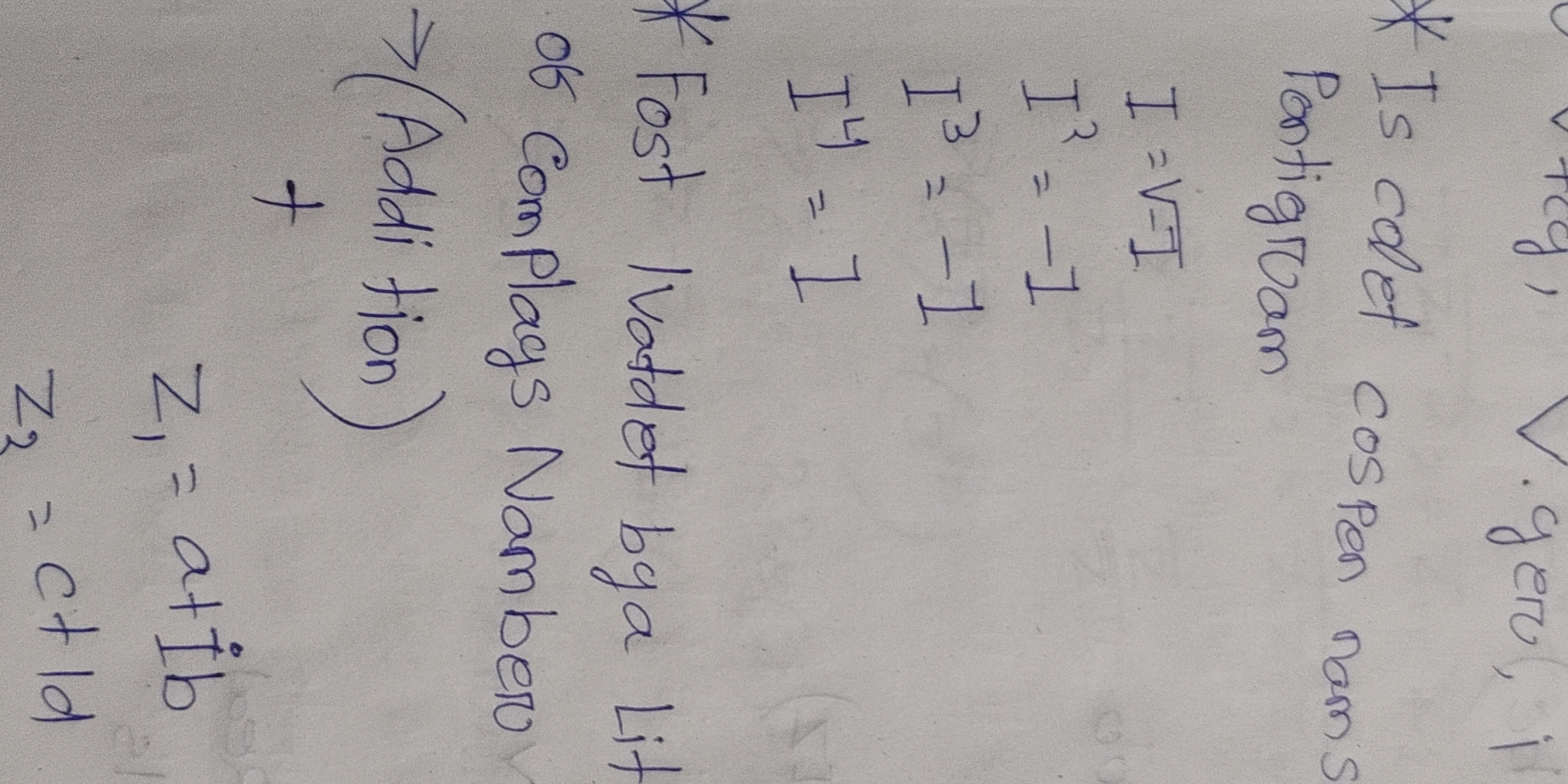What is the relation of complex numbers and their operations?

Understand the Problem
The question includes information related to complex numbers and possibly laws or properties of electrical circuits, possibly asking about the definitions or operations related to these subjects.
Answer
The sum of the complex numbers is \( Z = (a + c) + i(b + d) \).
Answer for screen readers
The sum of the complex numbers is ( Z = (a + c) + i(b + d) ).
Steps to Solve
-
Identify the complex numbers The complex numbers are given as:
- ( Z_1 = a + ib )
- ( Z_3 = c + id )
-
Understand the operations on complex numbers The problem suggests considering the addition operation, which states that when adding two complex numbers, you can add their real parts and their imaginary parts separately.
-
Perform addition of the complex numbers The addition of ( Z_1 ) and ( Z_3 ) can be expressed as: $$ Z = Z_1 + Z_3 = (a + c) + i(b + d) $$
-
Write the result clearly Hence, the result of adding the two complex numbers is: $$ Z = (a + c) + i(b + d) $$
The sum of the complex numbers is ( Z = (a + c) + i(b + d) ).
More Information
In complex numbers, ( a ) and ( c ) are the real parts, while ( b ) and ( d ) are the imaginary parts. Adding complex numbers is akin to vector addition in two-dimensional space.
Tips
A common mistake is to forget to combine the real parts and the imaginary parts separately. Remembering that complex numbers are added component-wise is crucial.
AI-generated content may contain errors. Please verify critical information